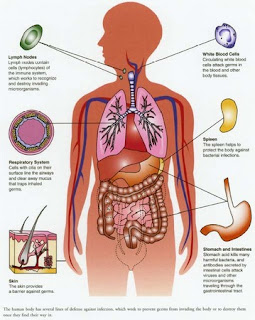Understanding Your Hierarchy of Needs

Abraham Maslow (1908-1970) was one of the founders of the humanistic school of psychology, which emerged in the 50's and 60's. Maslow, a graduate of the University of Wisconsin, served on the faculty of Brooklyn College from 1937 to 1951. During this time and onward in his life, he developed a notion of a hierarchy of human needs. What was unique about Maslow's hierarchy was that on the top of this pyramid lay what he called the Self-Actualized person. The self-actualized person, according to Maslow, was a person capable of achieving great things. This person was concerned with helping others and was all-around a genuine person.
The hierarchy consists of five areas. The bottom tier represents a person's basic physiological needs like food, water, shelter, etc. The next tier represents a person's need for safety. From there the pyramid moves to social needs and esteem needs. At the top of the pyramid is the need for self-actualization. You see, a person cannot merely stop growing. As long as someone is alive, they are experiencing and constantly shaping themselves. A person with all of their needs met, to Maslow, would no doubt move on to be the greatest person they could. A fulfilling life could not go otherwise.
A Lion in the Brush
Just like the pyramid, if the needs of the lower tiers are not met, the person cannot continue to grow. A man who struggles to eat does not care about social networks and does not care about the esteem he recieves from others. All he can care about is getting his next meal. A man fearful of the lion in the brush, waiting to pounce, does not care about self-actualization; he cares only for his and his family's safety.
The top tier of the pyramid is merely a false wish if the lower tiers are not built.

Is this not obvious though? How could we ever think otherwise about ourselves, that our most basic needs must come first? Don't be so quick to think so. This idea has become widespread over the years and thus just seems obvious. There is more to Maslow's optimism than meets the mind's eye.
Finding Yourself
When I was younger, I was driven to "find myself" like mostly every other adolescent. Because of a lost sense of self, my motivation for activities was stifled. I felt no reason to do certain things if I didn't feel like I knew who I was, where I was going, etc. I was mistaking the top tier for the lower tier. I seemed to think that knowing yourself was the base of the structure. I was building a pyramid in the sky, thinking it would stay afloat.
Becoming self-actualized does not lie with finding yourself and then experiencing life as "this or that person." Becoming self-actualized lies with finding yourself within the lower tiers; with finding ways to supply your needs, the needs that supply the base of the pyramid, of who you are.
Realizing the Right Goals
Focusing on the aspect that is needed the most will help to free up a person's life so that the highest goals can be achieved. Why are you worried about becoming self-actualized if you cannot even pay your monthly rent? Your building pyramids in the sky; merely making dreams and doing the wrong thing to see them come true. A person should deal with the pressing matter, study, learn, and overcome their afflictions. Dealing with problems in this way will provide a person with the necessary experiences in order to find themself in the long run.
Is your marriage burdened financially? Focus on that one problem until it no longer is a problem and you will have learned something about yourself that you would not have otherwise.
The important thing to realize about the hierarchy is that none of these needs completely goes away and there will always be times of hardship where lower tiers will become problem areas once again. The key is being able to become aware of these problems and deal with them. Too often these problems come slipping in our back door, raiding our fridge, and causing problems without our even knowing it.
Understanding your own personal hierarchy will make you aware of just how you should realize certain goals. You should be able to understand the circumstance well enough to know how to deal with it. Then you may be able to realize your self-actualization and become the enduring learner.
~ Mitchell Sahlfeld



Comments